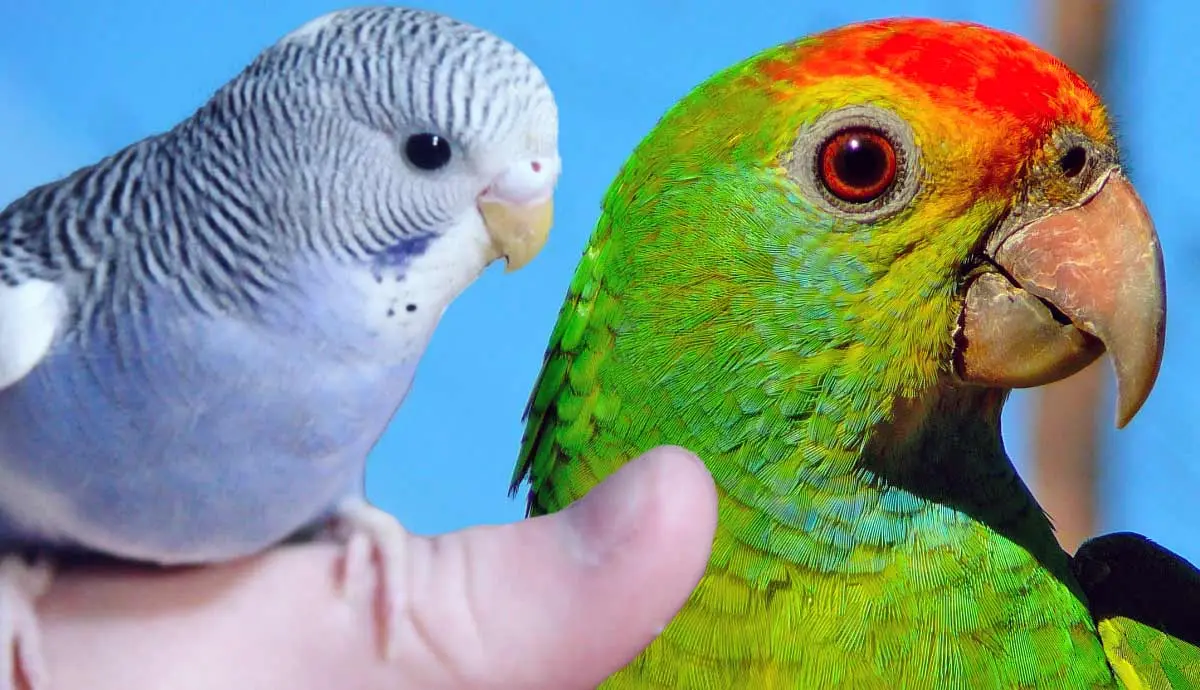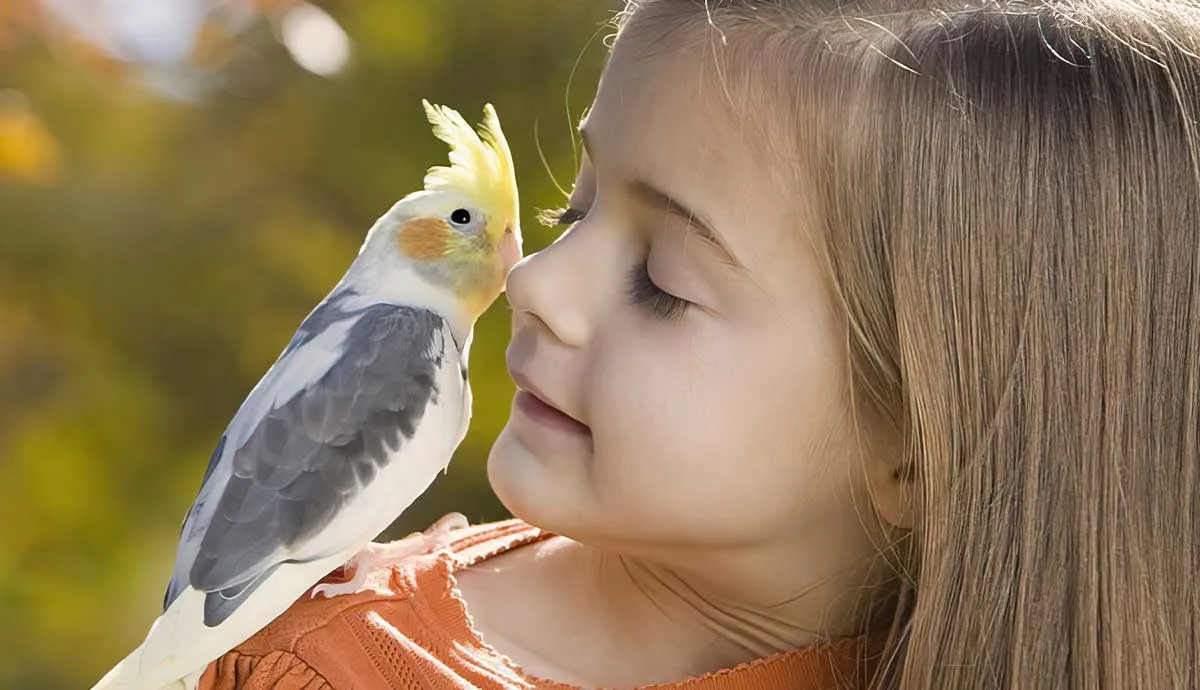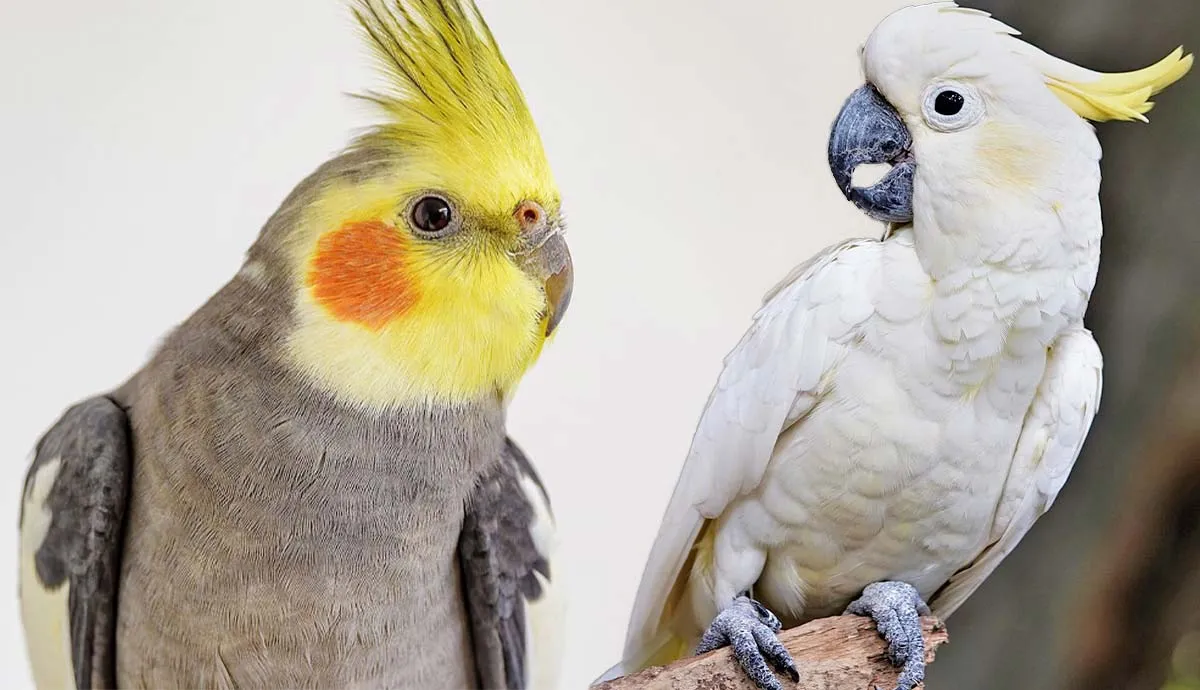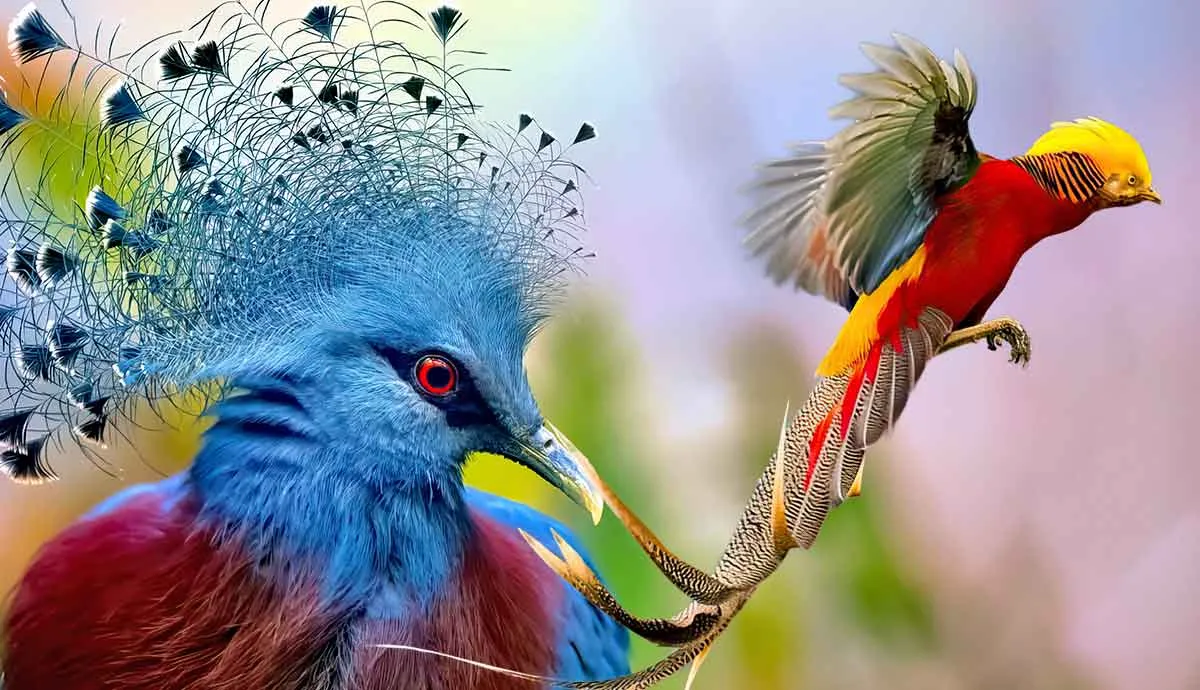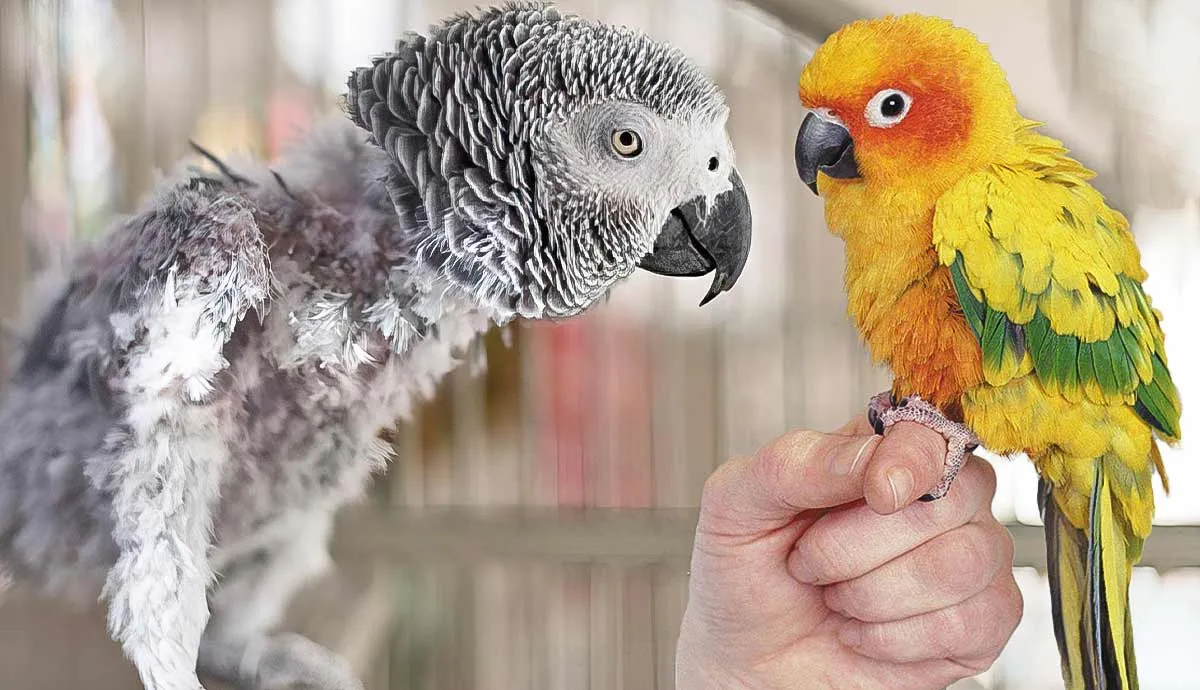Birds are magnificent creatures that make fantastic companions, but they also carry unique care requirements and responsibilities. Before you take the leap to add one to your flock, there are a few major things to consider.
In this guide, we explore some major considerations about bird ownership in general. We also point out some areas you should reflect on to determine what type of bird suits your lifestyle the best.
Why You Want a Pet Bird
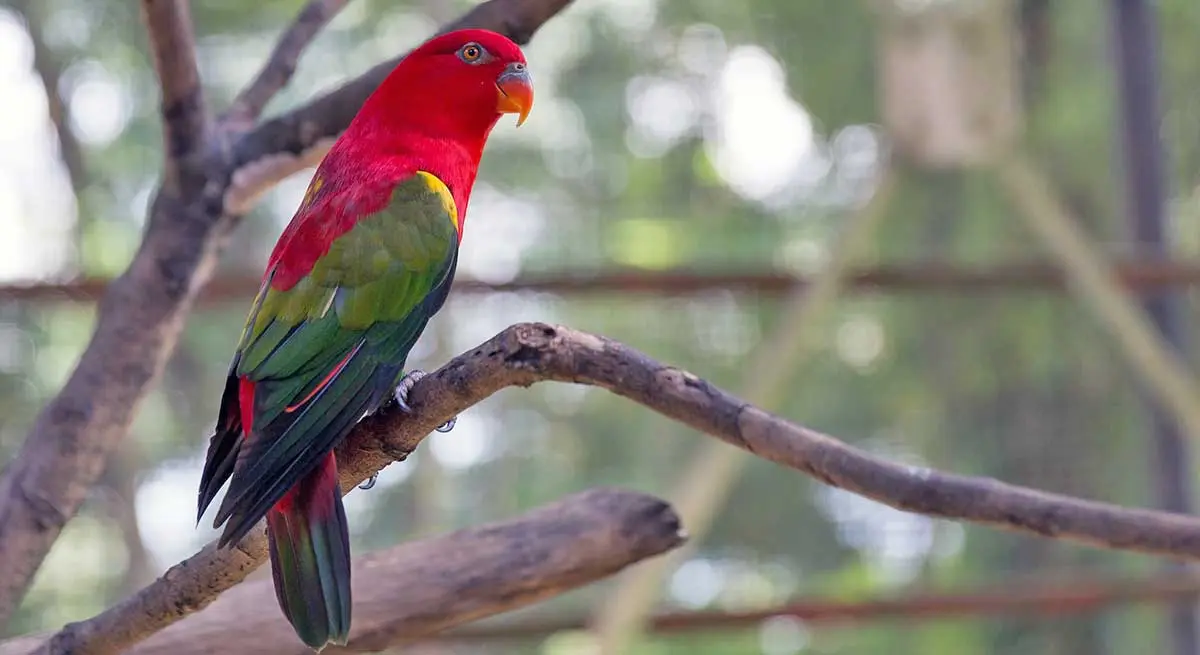
The first step in choosing a pet bird is understanding your own motivation. This helps you figure out what you’re willing to sacrifice (i.e. time or money), as well as what type of bird will suit this decision the best.
If you’re looking for a pet for your children, you may want a docile and hands-off species like parakeets or cockatiels. You should also consider how willing you are to take over care duties if your child loses interest or if the bird lives long enough to see them off to college.
Larger, more intelligent birds are much more rewarding but require more care. They’re fantastic for those who want a deep connection with a companion. Make sure you do ample research on the following considerations before taking on the responsibility.
How Much Free Time You Have to Care for a Bird
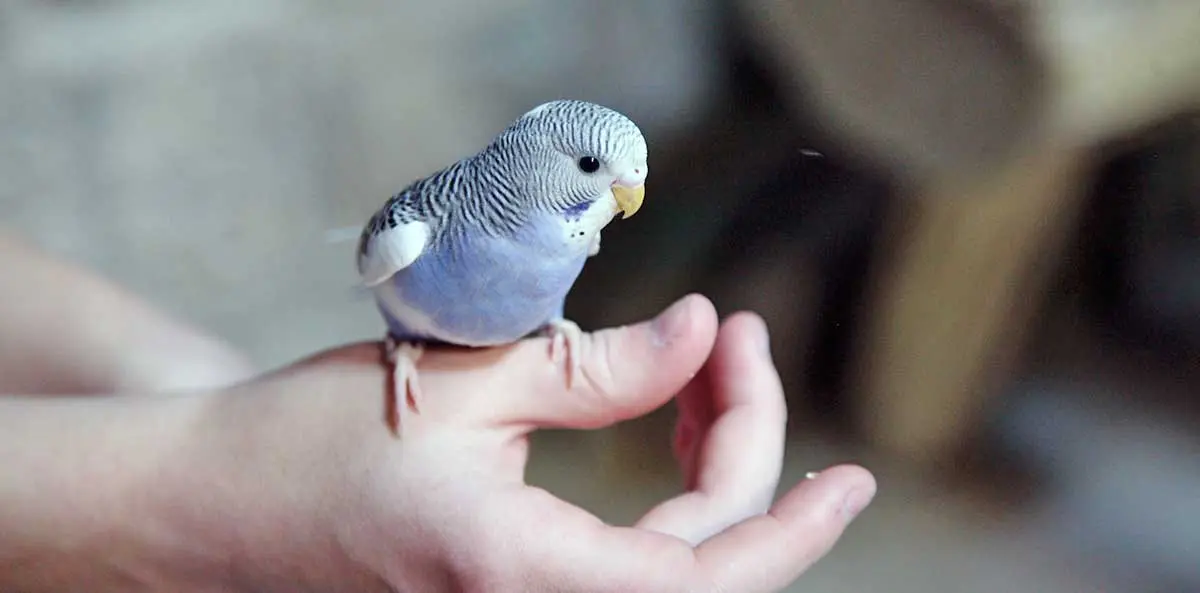
Even the smallest birds take a few hours out of your week as you spend time preparing their food, cleaning their cage, and spending time with them. At the very least, this amounts to:
- Thirty minutes a day on food prep and spot cleaning
- One hour a day for play time
- About one hour each week for deep cleaning
You may be able to shave off some minutes as you get into a routine, but you can’t skimp on socialization time. Birds are flock animals, and they’re used to being close to the members of their family.
Socialization is important for their health as well as your relationship with them. Birds who don’t receive proper social time often resort to attention-seeking behaviors, like self-harm or screaming.
Make sure you have enough time to dedicate to a bird before bringing it into your family.
Budget for a Pet Bird
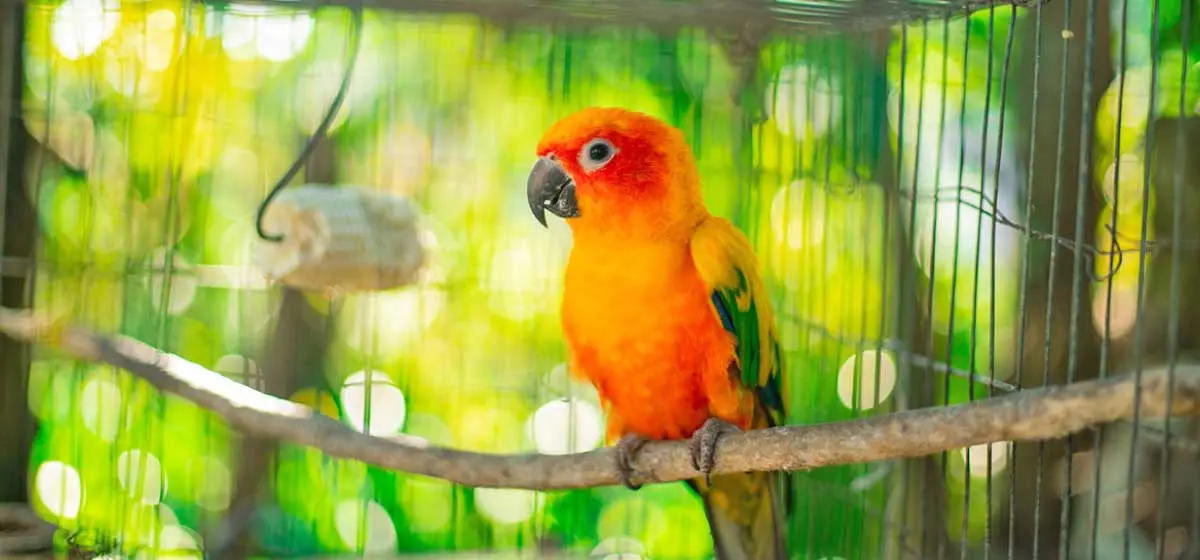
When creating your bird budget, consider both the initial costs and the continuing costs.
Initial costs include things like the purchase or adoption price of the bird, their enclosure, perches, and any other toys or supplies you need.
Recurring costs add up quickly, including replacement toys, food, treats, and veterinary care. While you can DIY toys and enrichment items to save some money, you might be surprised at how quickly some larger birds can solve puzzles and destroy these items (and how large that bill becomes).
Veterinary care is another major portion of a bird budget. You should ensure there is a suitable avian vet local to you and that you have a fund (or insurance) set aside for any emergencies.
The Personality Spectrum of Pet Birds
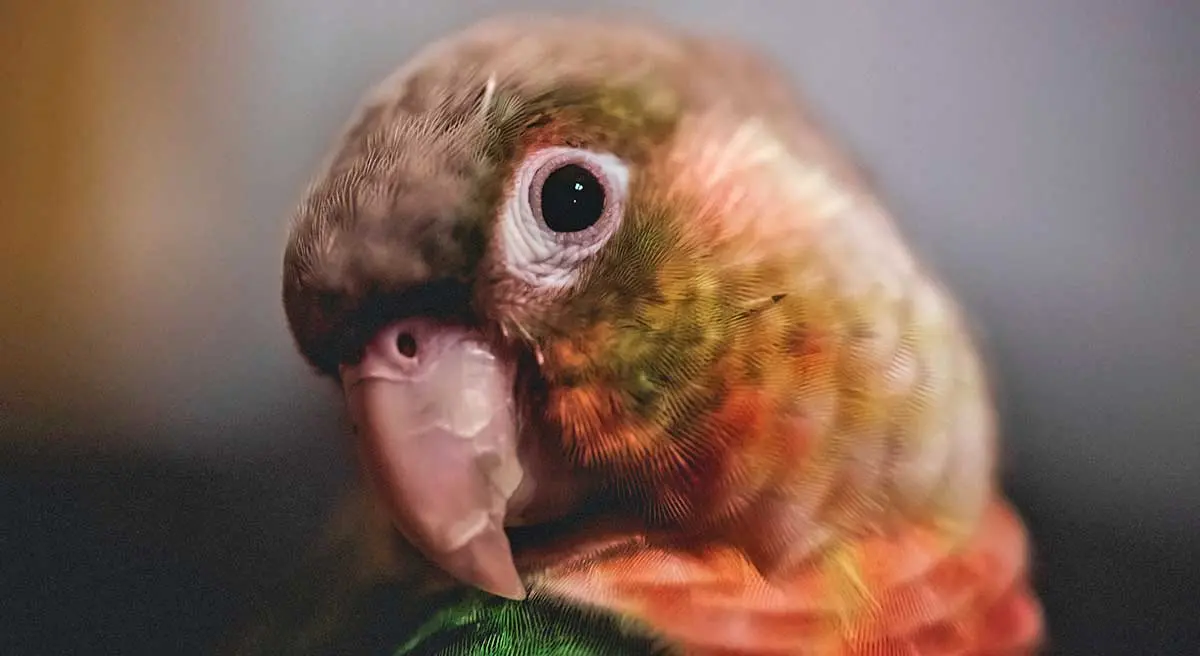
Once you understand what you can offer a bird, it’s time to do your research. There are plenty of types of birds that make great pets, but knowing what personality type you want narrows the search exponentially.
Smaller parrots like Cockatiels and Parakeets are usually friendly, easy to tame, and active. While they may not bond as deeply as larger parrots, there’s also a lower risk of behavioral issues and a lower responsibility threshold.
Conures, African Greys, Macaws, Amazons, and Cockatoos usually have more vibrant personalities, even between two of the same species, but they require more time and effort. Pigeons also make faithful companions without requiring as much care.
You should also determine whether you want a young bird or are okay with adopting an older one. Younger birds are easier to tame and connect with, while mature ones are more set in their behaviors.
The Space a Pet Bird Needs
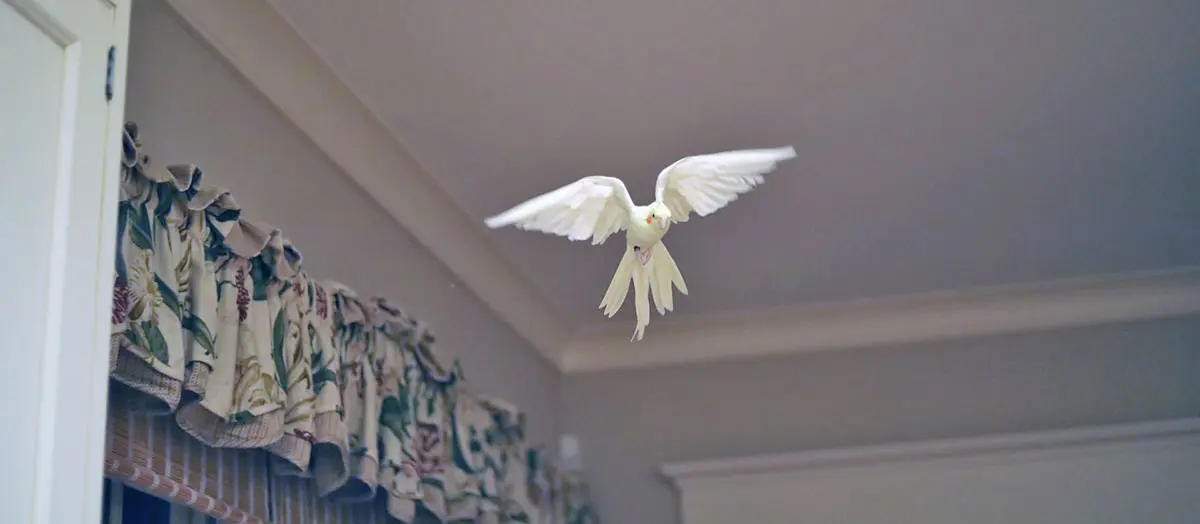
Do ample research to ensure you have enough room to appropriately house your bird of choice. When choosing a cage, larger is usually (but not always) better. You should have enough room for your bird to roam around, and you want the cage to sit at about eye level so your bird feels secure.
Birds also need plenty of time outside of their cage to explore, spend time with their flock, and stretch their wings. Make sure you’re okay with accommodating this need beforehand, and you understand which parts of your home you may need to close off.
Hazards in Your Home to Watch Out For
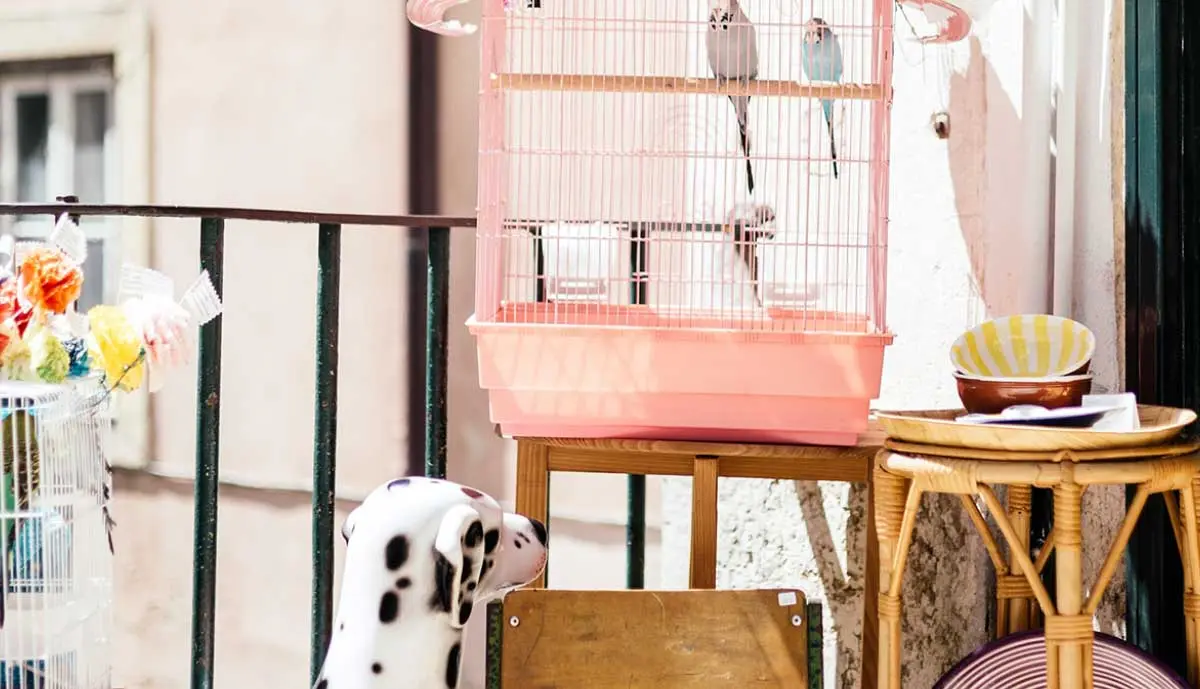
Other pets and small children don’t necessarily disqualify you from bird ownership, but you should be aware of the risks before introducing a feathered friend to your home.
If you’re choosing a bird for your child, make sure they’re mature enough to have a pet. If not, you may want to wait a few years, try an easier pet, or prepare to take on the majority of the responsibility.
Plenty of cats and dogs do well with birds around, but they should never be left alone in the room with your bird (even if the bird is in their cage). Make sure you can keep them separate even when you’re not home.
The Downsides of Owning Pet Birds
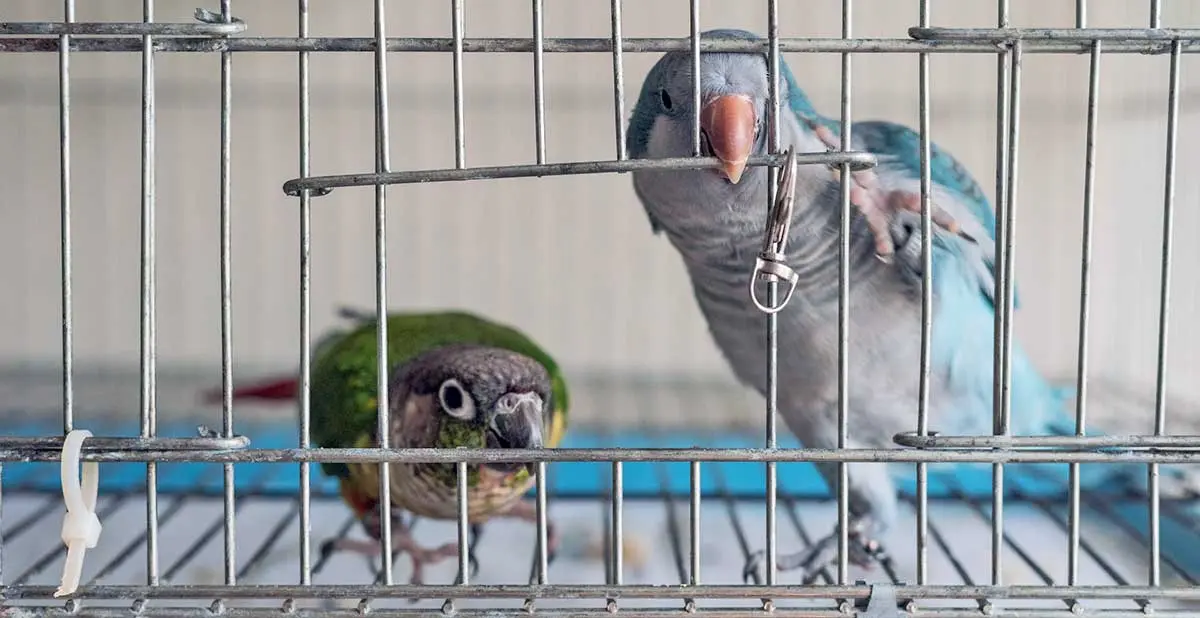
As long as you can provide a safe, healthy environment, the pros definitely outweigh the cons. You should consider the downsides none-the-less.
Even the smallest, most happy, well-adjusted birds can be noisy at times, so they may not be the best choice if you live in an apartment or with sensitive roommates. Birds aren’t the cleanest critters, either, so prepare for a lot of visual clutter.
When they have free time in your home, you want to watch out for chewing behavior on furniture, curtains, blinds, and other items in your home. You may need to train your bird to leave these items alone or remove them completely.
When you’re ready to take the next step, speak with reputable breeders or rescuers to make sure your choice is a sound one, and then prepare to meet your new best friend!
